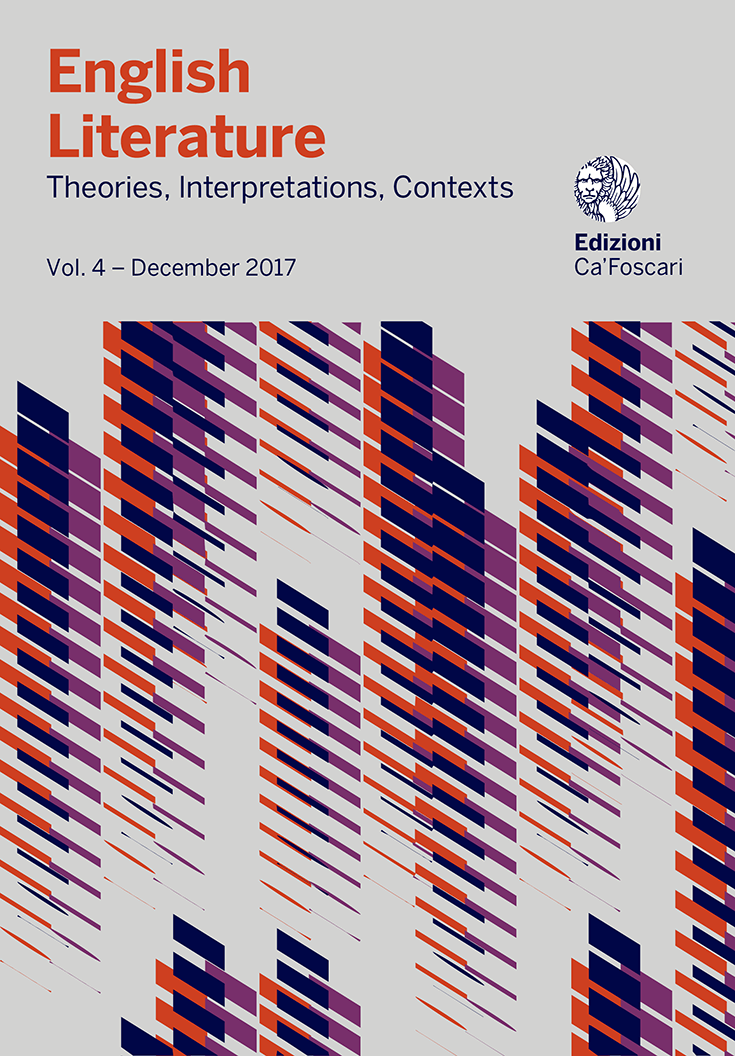
- search 402 views
- file_download 48 download
- keyboard_capslock metadata
-
mark_email_readIscriviti alla newsletter
Fears, Apprehensions and Conjectures
Suspense in Robinson Crusoe
abstract
The importance of Robinson Crusoe in the origins of the novel depends not only on its progressive plot and empirical style, but also on its pioneering narrative devices. Defoe’s work is characterised, in particular, by a new approach to the creation of suspense, considered by narratologists as one of the universals of narrative. This approach is based on a consistent, highly diversified use of hypothetical thinking. Crusoe’s emotionally charged previsions have the function of presenting possible plot developments, staging, and causing, the oscillation between fear and hope that is characteristic of suspense. Defoe’s work with suspense shows that epistemological change, in particular the rise of the modern notion of probability, had relevant implications also at the level of narrative discourse.
Keywords: Epistemology • Hypothetical thinking • Narrative • Suspense • Curiosity • Probability • Robinson Crusoe